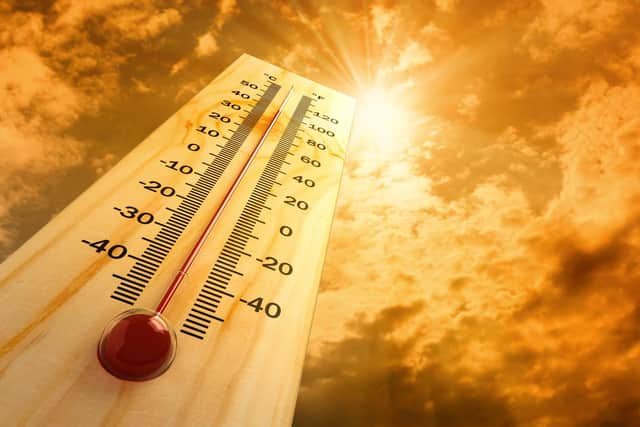Going Green: Planning for extreme weather is essential


We might be in the grip of a cold spell at the moment but research suggests there’s a 99 percent chance that 2024 will rank among the top five hottest years in human history.
2023 was the hottest year on record so far already and it turns out the other hottest years have all happened since the year 2000. Pollution from burning oil and gas, is causing the world to warm and global warming is accelerating fast with huge consequences for all of us.
Advertisement
Hide AdAdvertisement
Hide AdA group called the London Climate Resilience Review have published a report that concludes the capital is “underprepared” for climate change impacts like excessive heat, fires, sea level rise and flooding.


The heatwaves across the country in 2022 cost lives and severe flooding this winter has disrupted millions of people so the report couldn’t come at a better time. Planning for extreme weather is essential to save lives so now is exactly the time to start mitigating for the excessive heat that is sadly the new norm.
The Health and Safety Executive estimates there were 2,803 excess deaths during periods of heat in summer 2022. That’s people losing their lives because of the extreme temperatures.
In 2022, about 1,200 deaths were related to the coldest days.
Advertisement
Hide AdAdvertisement
Hide AdWhen you look at those figures, we need to be far better prepared for the hot weather than we currently are because it’s costing lives.


One of the major findings of the review is that London should conduct a multi-agency exercise to test just how prepared the capital is for extreme heat, which will happen later this year.
The review also suggests the government should give local councils more budget to help communities adapt to climate change – and it also suggests improvements are made to houses to help Londoners cope when the mercury rises.
The trend for lots of glass in new buildings that act as a greenhouse and lots of high-rise flats where warm air rises mean indoor temperatures can soar making it hard for us humans to cool down.
Advertisement
Hide AdAdvertisement
Hide AdAir conditioning units are expensive so not everyone can afford them. And families in over crowded accommodation and vulnerable people are more at risk
Emma Howard Boyd CBE, Chair of the Review, said: “London has many good plans and programmes to prepare for climate hazards but we need to recognise that Londoners now face lethal risks, and a step change is needed. Last year was the hottest on record and this is causing chaos and disruption all over the world. London is not immune, as shown by the flash floods in 2021 and a 40-degree heatwave in 2022.
“I am really pleased that the Mayor has agreed to support an exercise to prepare for even more severe heatwaves than we saw in 2022. This is a positive step that will help London organisations plan to protect more Londoners in future shocks.”
Where London leads though, the rest of the country follows. There have been local authority cuts in the UK and with budgets restricted, there’s less money to be spent on climate adaption plans which could save lives.
Advertisement
Hide AdAdvertisement
Hide AdThe review found London is at risk from rising sea levels, flooding, heat, drought and wildfires. The same can be said for towns and cities across the country. There are over 2000 miles of canals and rivers in the UK, plenty of them flow through incredibly built up areas in towns and cities. We have the longest coastline in Europe. It’s not just the capital that’s at risk from global warming, all major cities like Birmingham, Manchester, Newcastle, Bristol need to assess how prepared they are for the fact that 2024 is going to be one of the five hottest on record.